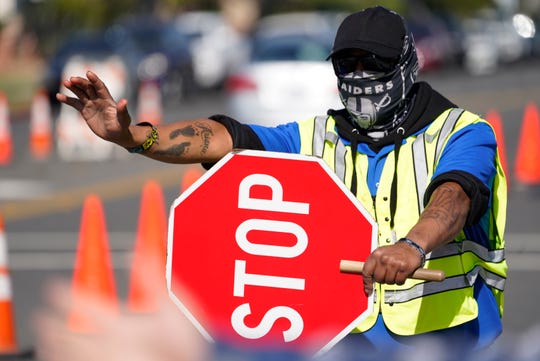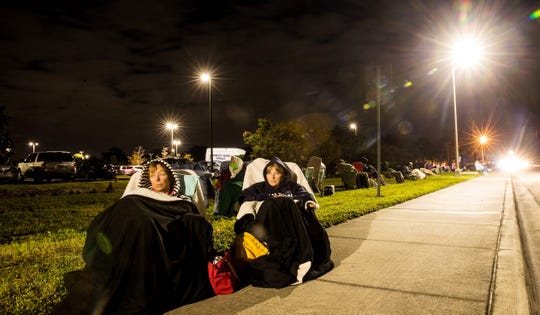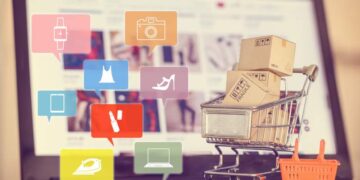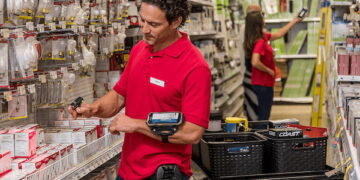Crédito: fuente
Dolly Parton tells USA TODAY’s Ralphie Aversa about wanting to get the COVID-19 vaccine. Catch their full conversation on «Ad Meter Live.»
USA TODAY
Bribing doctors. Circulating vaccination appointment codes. Chartering planes and impersonating essential workers.
More than a month since the U.S. first began administering COVID-19 vaccines, many people who were not supposed to be first in line have received vaccinations. Anecdotal reports suggest some people have deliberately leveraged widespread vulnerabilities in the distribution process to acquire vaccine. Others were just in the right place at the right time.
«There’s dozens and dozens of these stories, and they really show that the rollout was a complete disaster in terms of selling fairness,» said Arthur Caplan, who heads the medical ethics division at the NYU School of Medicine. «It wasn’t that we didn’t have consensus (on who should go first). We didn’t pay attention to logistics, and that drove distribution, not rules.»
Analysis: What went wrong with COVID-19 vaccine distribution and how it has tarnished the ‘miracle’

People wait in line for the COVID-19 vaccine in Paterson, N.J., Thursday, Jan. 21, 2021. Some hospitals around the U.S. are facing complaints about favoritism and line-jumping after their board members and donors received COVID-19 vaccinations or offers for the prized inoculations. (Photo: Seth Wenig, AP)
The efforts of one particular couple may take the cake for most extravagant scheme to get vaccinated.
Last month, casino executive Rodney Baker and his wife, actress Ekaterina Baker, chartered a plane to a remote community in Canada where health workers were administering vaccine to vulnerable members of the White River First Nation. The two posed as local motel employees and received vaccinations, according to a member of the Yukon Legislative Assembly. They now face fines.
«Like so many, I’m shocked and angry, but not surprised,» Kluane Adamek, Yukon Regional Chief of the Assembly of First Nations, said in a statement at the time. «These actions are a blatant display of disrespect and an exemplification of true privilege and entitlement; a selfish millionaire and his wife, stole doses of the vaccine from a vulnerable population, and put an entire community, nation and region at risk.»
Nearly 13 million people in the U.S. – about 5% of the U.S. population aged 16 years and older – received at least one dose of vaccine during the first month of vaccine rollout, according to data from the Centers for Disease Control and Prevention Monday.
The agency’s Advisory Committee on Immunization Practices recommended initially prioritizing vaccinations for the estimated 24 million health care personnel and long-term care facility residents in the U.S. But states and local authorities implemented varying versions of that national guidance. Florida and Texas, for example, expanded their vaccination programs to all people 65 and older.
Among people who received a first dose, 63% were women, 55% were 50 and older, and 60% were non-Hispanic white, according to the CDC. Those numbers «likely» reflect the demographic characteristics of health care personnel and longterm care facility residents recommended to be vaccinated in the priority group, the CDC said.
But the agency is missing data on race and ethnicity for about half of vaccine recipients, and it’s unclear what proportion of the recipients were health care personnel versus longterm care facility residents, the CDC said. «Therefore, it was not possible to directly compare the observed demographic patterns among persons initiating vaccination to demographic characteristics of prioritized populations,» the agency said.
‘It’s not a pretty picture’: Why the lack of racial data around COVID vaccines is ‘massive barrier’ to better distribution
Here’s how people who weren’t in priority groups got vaccinations:
Stealing, bribing and VIP scheduling
Some people have set out to deliberately steal, bribe or manipulate their way to vaccine. Last month, Polk County, Florida’s «2020 Paramedic of the Year» was arrested and charged with stealing vaccines meant for first responders. The first responder confessed to intentionally stealing three doses vaccine and forging paperwork in attempt to cover his actions.
In Philadelphia, a 22-year-old student who got a contract from the city to run its vaccine distribution sign-up admitted that he took four doses home and administered them to friends. The city announced last week that it would no longer work with the startup.
Several concierge doctors — who offer personalized medical services and direct access for an annual fee — have reported clients or would-be clients offering bribes for vaccine.
Dr. Robert Huizenga, who runs a practice in Beverly Hills, told Variety that his practice had been offered more than $10,000 by people, including members of the entertainment industry, who wanted to get vaccinated.
Dr. Ed Goldberg, who runs a practice on the Upper East Side in Manhattan and charges $20,000 a year, told USA TODAY he’d received calls from people specifically wanting to join his practice if a vaccine is guaranteed. Goldberg said he makes it clear that’s a «no-can-do.»
Latest COVID-19 updates: US tops 450K deaths as CDC reports ‘downward trajectory’ in cases

Traffic controller Max Estrada stops drivers arriving without a face mask for a COVID-19 vaccine appointment at the mass vaccination site at the parking lot of L.A. County Office of Education headquarters in Downey, Calif., Wednesday, Feb. 3, 2021. More than five weeks into its vaccination program, California doesn’t have nearly the supply to meet demand and there’s growing angst among residents over the difficulty to even get in line for a shot. Social media is awash with people seeking or giving tips on how to maneuver the system. (Photo: Damian Dovarganes, AP)
Officials across the nation have also raised concerns about wealthy donors and board members affiliated with hospitals and care facilities securing vaccinations before their allotted timeslot.
In early January, Florida Gov. Ron DeSantis announced he had directed Florida’s inspector general to look into the reports that MorseLife Health System, a pricey elder care center in West Palm Beach, gave vaccine to donors and members of the Palm Beach Country Club. U.S. Sen. Rick Scott also called for a congressional investigation.
Some people connected with New York developers Bill and David Mack – who are donors to MorseLife and are on the board of directors for the country club – were allegedly able to go to the health clinic there to get their shots. Among those given the vaccine at MorseLife was Robert Fromer, the former managing partner of a New York City law firm whose family foundation has donated $45,000 to MorseLife since 2015, the Washington Post reported.
Washington state has seen similar issues. The Seattle Times reported that three medical systems in the region gave special vaccine access to big donors or foundation members.
Providence Regional Medical Center in Everett, Washington, which admitted the first known U.S. case of COVID-19 over a year ago, said it made a mistake in prioritizing influential people. The hospital had reached out to hospital volunteers, volunteer board members and donors to offer the vaccine to those that met the state’s eligibility criteria.
«In retrospect we understand that in our haste to vaccinate people quickly – including certain members of our hospital community – we created the impression that some people are able to use their access to unfairly get a vaccination appointment,» the hospital said in a statement.
On Monday, the Washington state Health Department said in a statement that «VIP scheduling, reserving doses for inequitable or exclusive access and similar practices are banned and will not be tolerated.»
Politicians claim priority
Some politicians and religious and community leaders have received vaccine ahead of priority groups in an apparent bid to promote the safety and efficacy of COVID-19 vaccines among skeptical Americans, including groups that have been historically wary of the scientific community. Surveys in recent weeks show close to 60% of respondents saying they’d get a vaccine, up from a low of 1 in 2 Americans polled in September.
But many politicians have faced criticism for using their positions of power to get vaccinated early. Rep. Alexandria Ocasio-Cortez and Sen. Marco Rubio faced blowback from fellow lawmakers in December after they received their first shots and shared the news on social media.
«We are not more important than frontline workers, teachers etc. who are making sacrifices everyday,» Rep. Ilhan Omar wrote on Twitter Dec. 20. «People who need it most, should get it.»
In early January, six former governors of Kentucky and four former first ladies received vaccinations, including current Gov. Andy Beshear’s parents. «We urge all Kentuckians to roll up their sleeves, take the fight to COVID and do their part to move the commonwealth forward,» the group said in a statement at the time.
Los Angeles Mayor Eric Garcetti, 49, who said in December that he would wait his turn to receive a vaccination, was vaccinated last week at the recommendation of medical personnel, his office said.
«It looked like our politicians just pushed to the front of the line,» Caplan said.
Exploiting flaws in online book systems
Online booking tools have allowed some people – knowingly or unknowingly – to make appointments and receive shots by circulating web links or event codes intended for priority groups.
In Kansas City, Missouri, people who were not in priority groups were able to get a shot by clicking a scheduling link initially sent to priority patients vetted over the phone, Dr. Rex Archer, director of health at the Kansas City Health Department, told USA TODAY. The same thing happened last month in Montgomery County, Tennessee, according to local reports, and again last week at Virginia Mason Medical Center in Seattle.

Terri Kado, 66, right, and Patty Tubbs, 68, friends from Fort Myers Beach, Fla., wait in line for a COVID-19 vaccine in the early morning hours of Dec. 30 at Lakes Park Regional Library. They got in line at midnight. The two enjoyed the experience, watching the moon move through the sky. To them, the vaccine brings peace of mind and a positive start to the new year. (Photo: Andrew West/The News-Press)
Gale Robinette, a spokesperson for Virginia Mason Medical Center, told USA TODAY a «technical glitch» in the organization’s online registration form «may have allowed» some individuals to be scheduled for vaccination before they were eligible. Now, recipients need a photo ID and proof of eligibility confirmation from the department of health.
«We apologize for any confusion or inconvenience this may have caused,» Robinette said. «There is no indication any one intentionally ‘gamed’ the system in order to get the vaccine earlier than they should.»
In New Mexico, some people were able to secure shots by circulating a special code sent to healthcare workers that allowed them to book appointments online, according to local reports. State health officials disabled the code when they discovered the issue.
Now, «the system checks users against current eligibility criteria and prevents them from confirming an appointment if they don’t qualify,» Matt Bieber, a spokesperson for the New Mexico Department of Health, told USA TODAY.
Willing to take the left-overs
Some people have snagged a vaccination by volunteering to receive a shot that would have otherwise been thrown out.
Many people wait for hours outside mass vaccination clinics in Los Angeles and San Diego, where health care teams give away thawed but unused vaccines from appointment no-shows at the end of the day.
Under California guidelines, as in many other states, health departments and providers can offer doses «promptly to people in lower priority groups» when doses are about to expire according to labeling instructions or doses that have been thawed and would otherwise go to waste.
Similar high-stakes scenarios have played out after power outages or unexpected freezer fails. Last week, Seattle hospitals rushed out COVID-19 vaccines to hundreds of people in the middle of the night after a freezer they were being stored in shut off. Two hospitals put out emergency calls on social media, and each administered more than 800 doses of vaccine late that night and into the morning.
The hospitals did not immediately respond to inquires about how many of the vaccinations went to priority patients.
Weeks earlier, just north of Seattle, the Tulalip Tribes in Washington State rushed out 700 vaccinations in a matter of hours after a windstorm knocked out power to much of the county, including the reservation’s freezer. Clinic staff vaccinated tribal elders, local teachers, Snohomish County first responders and others.
At the end of January, health care workers in Oregon driving back from a vaccination event got stuck in a snow storm with six doses that were about to expire. The staff, not wanting the vaccine to go to waste, trekked through the storm offering it to motorists stuck on the road, eventually finding six takers after 45 minutes.
Greater regulation?
Several public health experts said incidents of deliberate line-jumping are likely small-scale. But the anecdotes point to larger problems in the U.S. vaccine rollout, as well as underlying systemic issues.
«If anything, this fiasco with the vaccines and line jumping and bad actors and black markets should be the beacon that lets us know it’s time to look at our entire health system,» said Glenn Ellis, a visiting scholar at the National Bioethics Center at Tuskegee University and a bioethics fellow at Harvard Medical School.
«One way or another privilege, power and money is affording access — unscheduled and unnatural access to something. Line-jumping is just another form of that.»
‘An unbelievable chain of oppression’: America’s history of racism was a preexisting condition for COVID-19
Dr. William John Moss, executive director of the International Vaccine Access Center at Johns Hopkins University Bloomberg School of Public Health, said the issues in the U.S. vaccine rollout boil down to two fundamental problems: the ambiguity of vaccination eligibility criteria, and the logistics of scheduling vaccination appointments.
«We’ve ended up in a situation where we have these very broad categories that can be interpreted very broadly,» Moss said, referencing categories such as «essential worker» and «co-morbidities.»
SoulCycle instructor and Instagram influencer Stacey Griffith, 52, for example, received a vaccination last month by characterizing herself as an «educator.» She later apologized for receiving the vaccine.
And while some people have taken advantage of flaws in online appointment booking systems, many people in priority groups are struggling to navigate them.
«Older adults are having a tremendous difficulty in scheduling vaccine appointments, as well as disadvantaged communities, particularly low-income, African American or Latino communities, because it requires internet access, having a computer available, being willing and able, perhaps, to spend hours online trying to get an appointment,» Moss said.
Moss said his parents, in their 90s in New Jersey, have not been able to get vaccinated. They signed up online, and they’re waiting to be called. But his wife and the young scientists in her laboratory have all been vaccinated.
«I don’t think it should be that way,» he said. «I would like to see stricter criteria on who’s getting the vaccine to make sure we’re getting it to those individuals who really need it first.»
Caplan argued that there should be penalties for people who get vaccinated before their allotted timeframe, as laid out by local guidance.
«If you want people to follow the rules, put in some penalties if you break them,» Caplan said. «People brag about how they got vaccinated on the internet, and nothing happens.»
At the same time, more stringent regulations could hamper efforts to reach vulnerable communities, said Kate Cole, a spokesperson for the public health department in King County, Washington.
«Our observation has been that the vast majority of people are following the rules and that a more stringent verification process could create more barriers for those most in need,» Cole said. «Due to the influences of structural racism and difficulties accessing technology, those most at risk typically have fewer resources to successfully navigate the healthcare system for vaccines.»
The issue of line-jumping could become more widespread as vaccine production continues to ramp up and doses begin to roll out to pharmacies in the coming weeks. CVS Health and Walgreens said they’re taking steps to make sure pharmacies schedule vaccinations in line with priority groups.
CVS Health said in a statement that it plans to offer vaccines in retail stores on an appointment-only basis, booked online, on the phone or through the app. Patients making an appointment will be screened via a questionnaire to confirm their eligibility to receive a vaccine in their state, the company said. Patients will be asked to attest that all information provided during appointment set up is truthful and accurate, and some states will require the collection of IDs to verify eligibility.
Similarly, Walgreens said patients arriving for vaccinations appointments must sign an affidavit confirming they meet their state’s eligibility requirement. Patients also need to show a valid government ID to confirm their identity at the time of their vaccination appointment.
«If people have opportunities to cut they line, they should think about it, if they’re not in a high-risk category,» Moss said. «They should be willing to wait their turn.»
Contributing: John Pacenti and Jane Musgrave, The Palm Beach Post
Read or Share this story: https://www.usatoday.com/story/news/health/2021/02/03/covid-vaccine-some-people-cutting-bribing-before-their-turn/4308915001/








